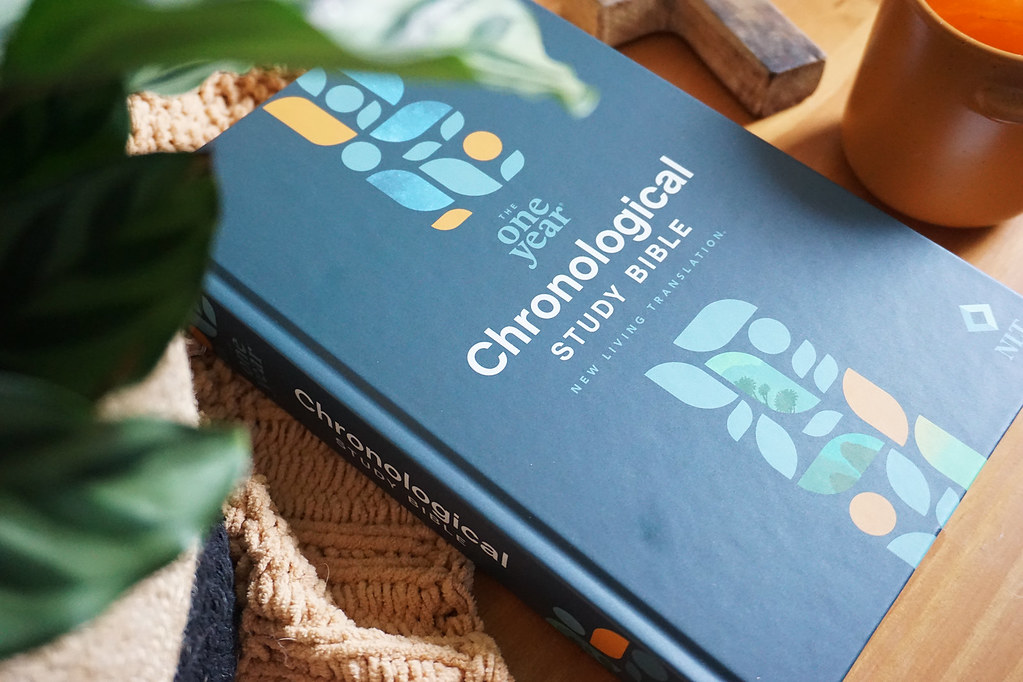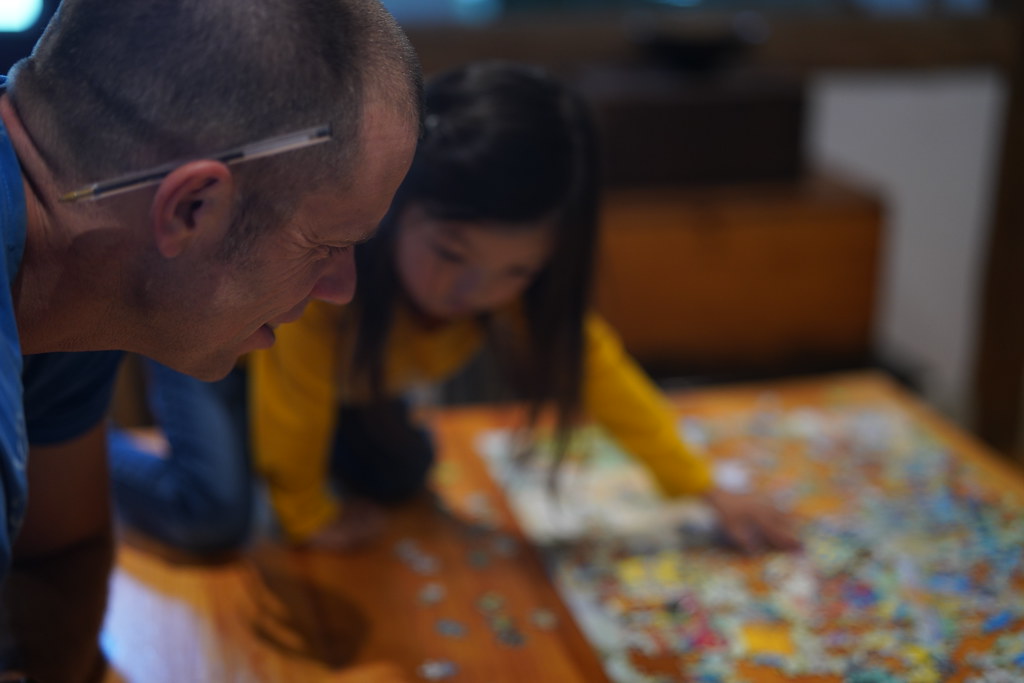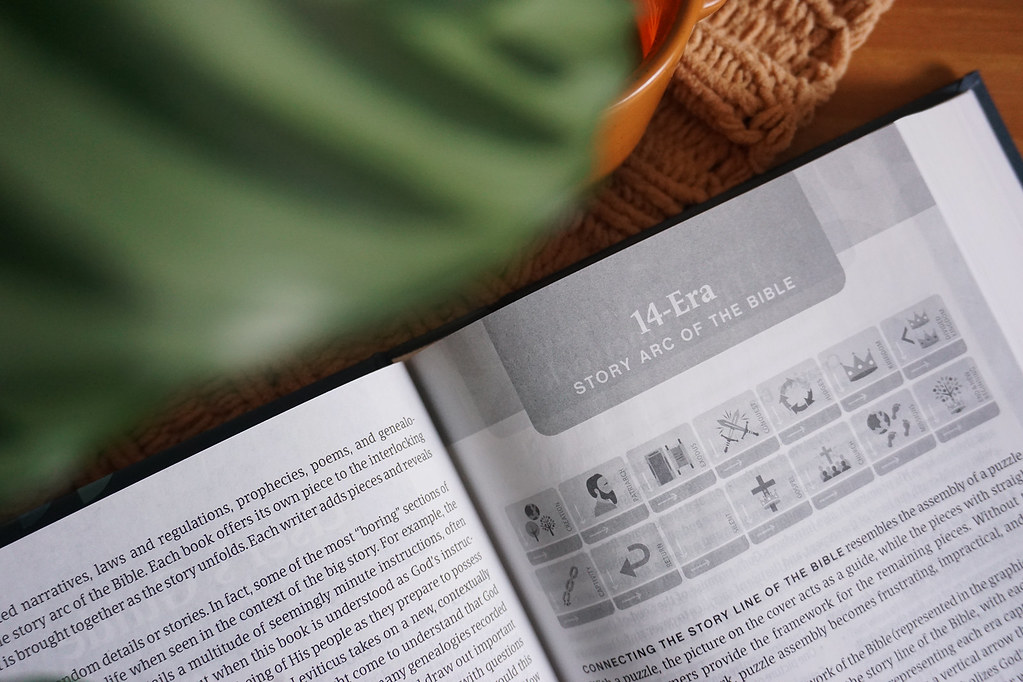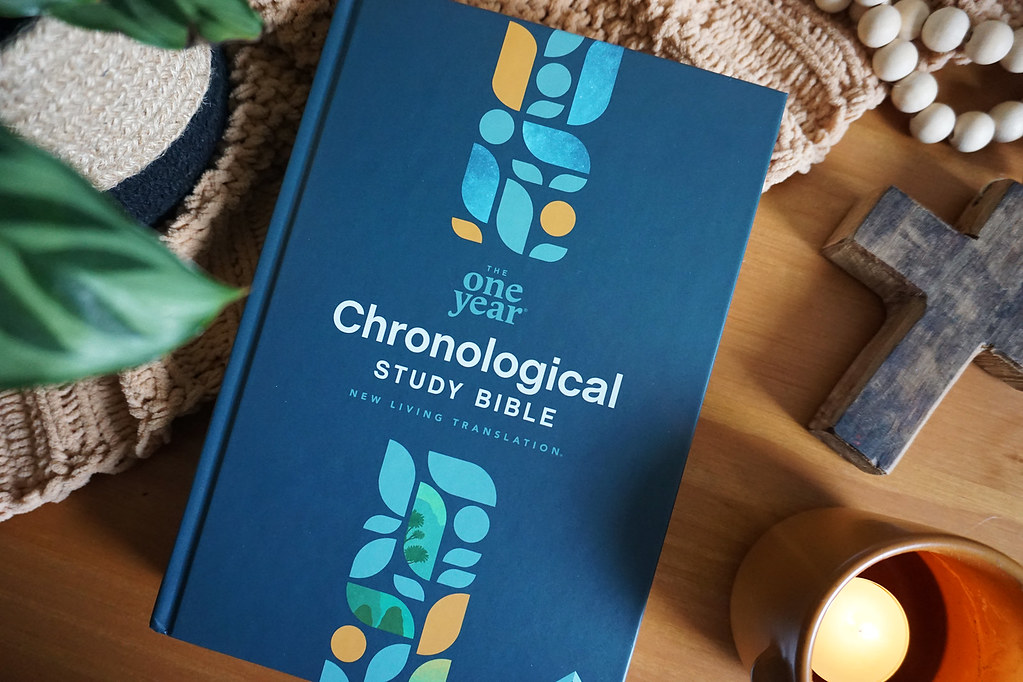Iva May was often frustrated and did not know what she was missing as she faithfully read through the Bible year after year. She loved and taught God’s Word, but she couldn’t quite put together the Bible’s big story—until she was introduced to The One Year Chronological Bible, which arranges the contents of the Bible chronologically. Suddenly, the redemptive story of the Bible became clear. Iva discovered that there are no stand-alone books or stories in the Bible; all the pieces work together to tell one grand narrative. For Iva, understanding the story of the Bible is like putting together the best puzzle ever made, and when the image is revealed, you can’t help but be transformed. It’s a grace to welcome Iva to the farm’s table today…
With puzzles, the picture on the cover acts as a guide, and the straight edges and corners provide the framework for the remaining pieces. Without this picture and framework, puzzle assembly becomes frustrating, impractical, and very difficult.
“Having no overview picture or guiding framework can lead to people giving up on reading it or even creating a distorted view of it.”
The same thing can happen when trying to understand the Bible. Having no overview picture or guiding framework can lead to people giving up on reading it or even creating a distorted view of it.
For several decades, my Bible reading had consisted of favorite passages or stories, verses that I had memorized, favorite authors, and the daily and annual discipline of reading through the Bible. I thought that was all I needed to do. I thought I understood the Bible. But then I asked myself three questions:
What is Bible literacy?
Why is Bible literacy critical?
How can I become Bible literate?







“To qualify as Bible literate, I needed to know the whole story, not just the parts of the Bible here and there that I really liked. I needed to understand it in its entirety so I could tell it to others.“
As I grappled with the first question, I found a definition from Celina Durgan from the Center for Hebraic Thought’s The Biblical Mind: “Bible literacy is thorough familiarity with the key narratives, people, order of events, and basic, clear themes throughout the whole Bible—yes, even the minor prophets.”
I realized Bible literacy is understanding, with the ability to tell, the story of the Bible.
To qualify as Bible literate, I needed to know the whole story, not just the parts of the Bible here and there that I really liked. I needed to understand it in its entirety so I could tell it to others.
This led me to my next question: Why is it critical for me to be Bible literate?
I began to realize that faith cannot exist in a vacuum. It is directly connected to the knowledge of the Scriptures. The apostle Paul addresses believers and connects faith to hearing God’s Word: “So then faith comes by hearing, and hearing by the word of God” (Romans 10:17). Bible literacy, however, isn’t merely a New Testament idea. For the people of Israel to become a people of faith, every generation had to become Bible literate. God laid out a Bible literacy plan.
They must know and trust the Originator of all creation, He who has no beginning. They must feel the failure of all humanity, beginning with Adam and Eve, to believe God and walk in His ways. They must trust in God’s promise of Redemption, beginning with Genesis 3:15. They must understand God’s ways with their ancestors. They must live lives of hope and expectation. They must tell others.
“God intended for Bible literacy—knowledge of His Word—to become a core value in Israel.“
God intended for Bible literacy—knowledge of His Word—to become a core value in Israel. Moses connected it to spiritual vitality (Deuteronomy 32:45-47) and instructed all the people to gather at the Festival of Shelters every seven years for a complete reading of the Book of the Law (Deuteronomy 31:9-13). Prior to the Exile, the only recorded instance of this happening comes during the revival of Josiah (2 Chronicles 34:29-30).
After Nehemiah registers the people according to their genealogy and opens the treasury to receive gifts for the rebuilding, Ezra leads a public reading of the Book of the Law. The Levites interpret the Book of the Law to help the people understand. Returning to the land requires a rebuilt Temple, a rebuilt city, and a rebuilt people—a people who know their God and know His Word.
Bible literacy makes the difference between ruin and revival.









Many years ago, I traveled to Myanmar.
Our host took our team to several significant sites for Buddhists. One was the Kyaiktiyo Pagoda, a huge granite rock that sits precariously on the side of a mountain. Male devotees frequently paste gold leaf to the outside of the rock. According to legend, it is held up by a hair of Buddha.
As I observed devotees bringing gold leaf, flowers, and fruit, I was reminded of the importance of Bible literacy. That morning I had read Psalm 138:2, which ends with the words “For You have magnified Your word above all Your name.” I could not imagine anything more exalted than the name Jehovah God, yet the psalmist magnifies God’s Word above His name.
“Men without God’s Word will place their faith in idols and false narratives.”
I knew in that moment that men without God’s Word will place their faith in idols and false narratives.
During that moment on the mountainside, I understood that the world, those sitting in darkness, would remain trapped with no way out unless believers know and tell His story. We, the church, are stewards of God’s redemptive story. We must know it to tell it—from beginning to end, Genesis to Revelation.
Knowing I needed to take action, I dove into answering my final question: How do I move beyond Bible reading to Bible literacy? I started by reading a Chronological Study Bible . This helped me develop a framework of the metanarrative of the Bible. Then I added notes to the framework as I read through the Bible.
As I read, I started asking important questions such as: Where else in the narrative have I seen God? Is he revealing himself through this person? Where do I see his likeness? Is there a particular topic, place, or similar situation? What does this passage, person, or situation reveal about God? What does it reveal about human nature? What does it say about sin?
I added messages and lessons that I heard to the relevant place in the story framework and practiced telling the basic story of the Bible to others, adding details to the story framework when relevant.
I learned how to identify and follow a theme throughout the Bible, and finally, I decided to never settle for what I already knew.
The story of the Bible tells is far too important for me to read without understanding!
There is always something new God is wanting to reveal to us through His incredible story — more about His heart, our hope, the healing wholeness that is found in Him!

Iva May is the founder and CEO of Chronological Bible Teaching Ministries. Iva is married to Stan, a pastor, and they have three children and three grandchildren.
The One Year Chronological Study Bible is the perfect framework for not just reading but also understanding the Bible. Using the accurate and understandable New Living Translation, Scripture is split into 365 daily readings with Bible events arranged in the order they actually happened. Each daily reading also includes an introduction and three closing questions. In addition, this Bible uses the 14 eras timeline to help readers visualize where they are in the story and includes a flexible annual reading plan as well as helpful articles that explain themes throughout the Bible. Experience the whole story.
[ Our humble thanks to Tyndale House Publishers for their partnership in today’s devotion ]







